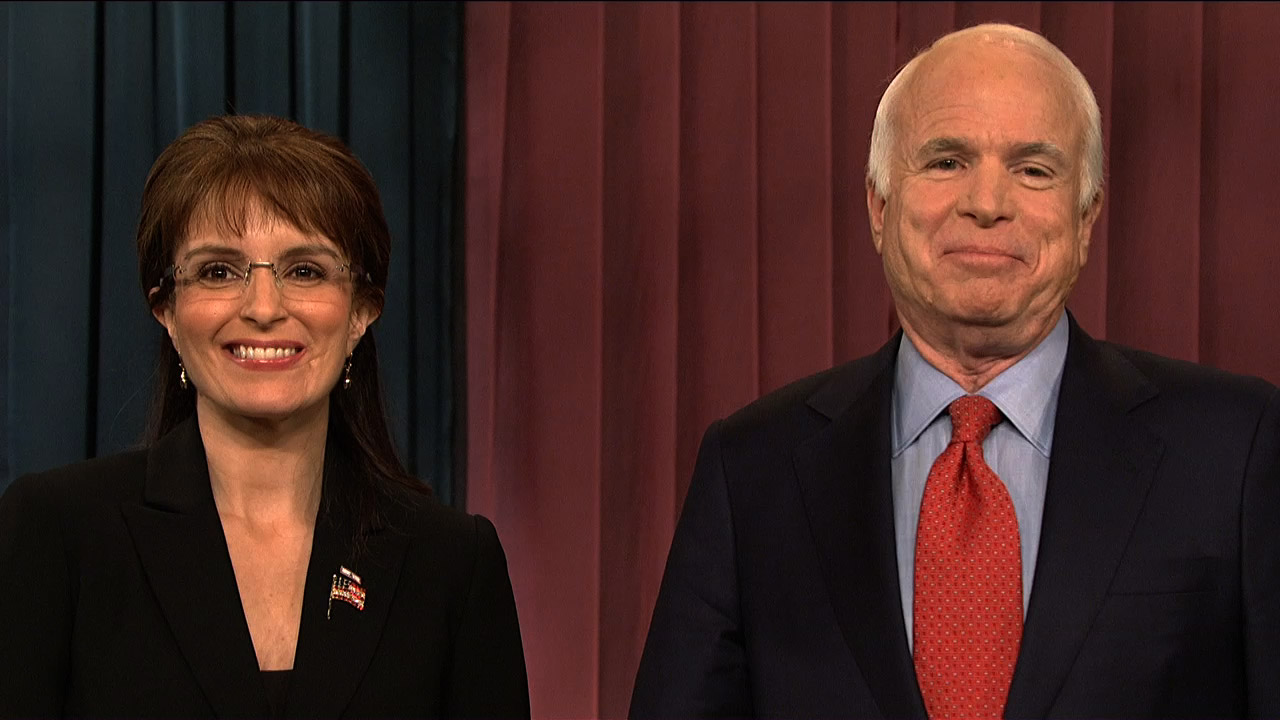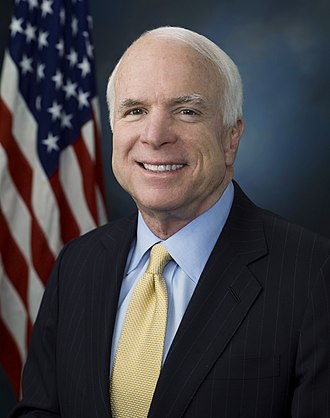For Good & Country: John McCain 1936-2018…
It is not uncommon for members of the United States House of Representatives or Senate to etch a place into history. Few have quite like Senator John McCain, a Republican from Senator. His place as a politician is mixed, but the high points reflect the best of our system at a time when the least of it reigns supreme.
Ultimately, that mixed record does not reflect the patriotism that McCain, a son of privilege, expressed to benefit others. As a prisoner-of-war, he took a pass on freedom on behalf of others.
On Saturday afternoon, after a year-long battle with brain cancer, McCain died. He had been absent from the Senate since last Fall as he battled the disease that would ultimately kill him nine years to the day it took Massachusetts Senator Edward Kennedy.
There will be an impulse to lionize McCain and ignore his failings. That is wrong. However, there is something appealing about a model for our time that is flawed. Compare that to amorality in the White House that declares itself perfection.
In objecting to his own party’s efforts to end healthcare for millions, McCain may have saved countless lives. However, it was also a rejection of his party’s behavior long before Donald Trump.
Born August 29, 1936 in the Canal Zone of Panama, McCain was the son and grandson of admirals. He, too, joined the navy and became a pilot. In 1967, while serving over Vietnam, he was shot down and held by the North Vietnamese in, among other places, the infamous Hanoi Hilton.
Given who his father was—the elder McCain had just received a top post in the Vietnam—the North Vietnamese offered him release. However, he lived up to the Code of Conduct and insisted those captured before him be released before he would accept freedom himself. The North Vietnamese responded by torturing him.

Meeting President Richard Nixon after his release. (via wikipedia)
Upon his release in 1973, he returned to the navy. However, by the 1980’s he had begun a political career that would ultimately take him to the Senate where he succeeded Barry Goldwater. McCain would later run for president twice, losing the nomination to George W. Bush in 2000, and later the general to Barack Obama in 2008.
Though his maverick stance doesn’t fully match the hype, he did break with his party, most prominently on campaign finance. The bill that bears his name has been gutted by the Supreme Court and his party’s leader in the Senate. Still McCain’s effort represented, in the end, an appreciation that real power in the US should lie with the people, not money.

The McCains campaigning with the Palins. (via wikipedia)
Of his presidential campaigns, it is the second which is better known. Not just for losing to Barack Obama, but for choosing Alaska Governor Sarah Palin to be his running mate. Perhaps that selection uncorked the hysteria and resentment-driven fortune cookie wisdom that came to define Palin and ultimately delivered Trump. Or perhaps it was inevitable.
Regardless, it was a revelation of what was to come. However, McCain did not agree with it. On the trail in 2008, McCain famously—and rightly—snatched a microphone from a woman who declared distrust of Obama because “he’s an Arab.”
McCain countered “he is a decent family man, citizen that I just happen to have disagreements with.”
While there was always some sense of bitterness in losing to Obama, McCain was gracious in congratulating his opponent nomination and later victory.
Rather, McCain’s graver political sin was to succumb to the wraith that leads his party in the Senate. Like virtually all his colleagues, McCain let Mitch McConnell take a battering ram to the norms and traditions of the United States Senate. Even routine items became bottled up to spite the Democratic president. It would strain Obama’s administration and effectively shut down the world’s greatest deliberative body.
However, McCain did, fundamentally, believe in the collaborative approach of the Senate. He always declared it worked best when it followed its own traditions and rules.
With the rise of Trump, who viciously mocked McCain’s imprisonment, McCain increasingly spoke out in favor of the liberal world order. That could manifest itself in reflexive support for military intervention whether in Iran, Iraq or elsewhere. It also informed his defense of the world America and her allies built after WWII. Moreover, he never allowed it to justify America’s employ of torture in the Bush years.

McCain appearing on “QVC” with running mate “Sarah Palin” (Tina Fey) in an episode of SNL in 2008 (via NBC)
It is possible his outspokenness merely reflected a taste for the limelight. His positive reputation was partly due to his accessibility to East Coast reporters. However, he could make fun of himself, too. He hosted Saturday Night Live and later mocked his flailing campaign in 2008 on the program.
Until the senator’s cancer diagnosis and for as long as he could afterward, McCain sounded the alarm about what Trump was doing to the international order. Perhaps he could have been more vocal before the 2016 election. However, McCain’s siren was appreciated, essential, and, ultimately, above reproach.
Though he abetted Trump in some ways—voting for the crooks in his cabinet for example—he condemned the rescission of protection for undocumented immigrants brought here as children. He sided with both civility and humanity by slamming the pardon of former Maricopa Sheriff Joe Arpaio. The ex-sheriff has long appeared guilty of serial human and civil rights abuses.
McCain’s healthcare vote in the Senate may be the best proof that his value of order extended not just to the international. It was ultimately an explicit rejection of McConnellism. His party’s leader had detonated one Senate process after another in the interest of politics, namely power for himself.

McCain votes no as McConnell looks downcast. (via wikipedia)
The vote is important even though it is conceivable McCain could have voted for the bill on ideological reasons—as opposed to the other Republican no votes, Susan Collins and Lisa Murkowski. He voted it down because the GOP had slapped the bill together, in haste and in secret, with potentially terrible consequences. There was no committee review or learned testimony. There was no consideration at all.
In the end McCain rejected that. He rejected that cynicism and what it has done to America. Regardless of whether he believed he was saving people, he was striking a blow for the republic.

Sen. John McCain in 2009. (via wikipedia)
There were contradictions throughout his career that had terrible consequences. However, they ultimately add texture, not just doubt to his legacy. There was a man of honor and conviction beneath the senator, the congressman, the captain, the prisoner-of-war. There was a love of country and its values that was not just some cartoonish misconception of both. Americans should hope that does not pass away with him—and work to ensure such.
John McCain was 81.
